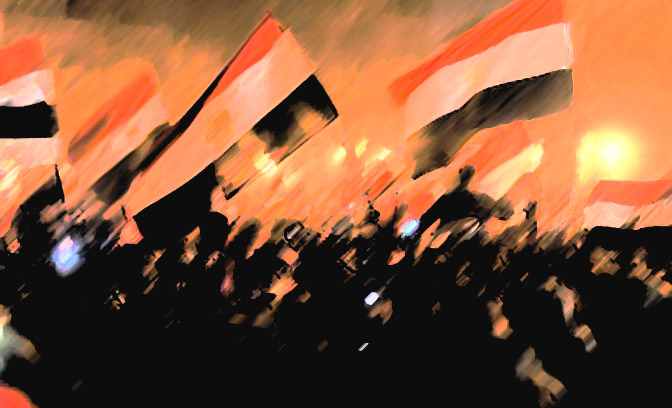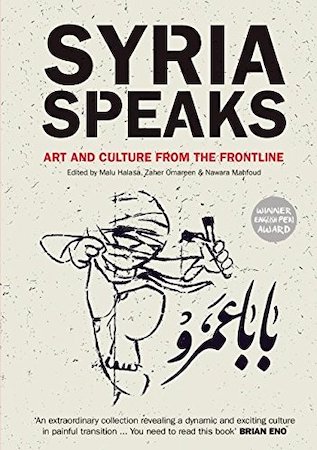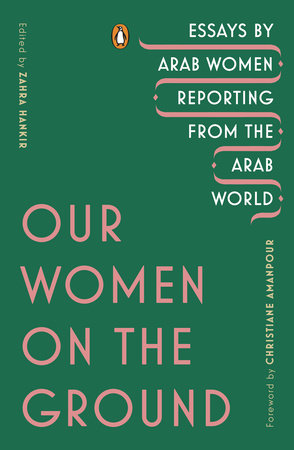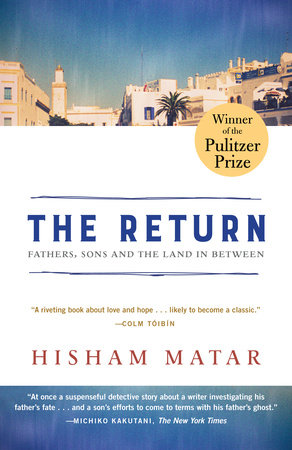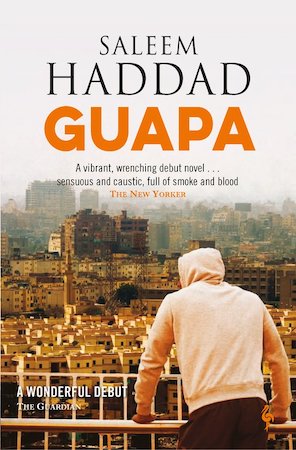If you enjoy reading Electric Literature, join our mailing list! We’ll send you the best of EL each week, and you’ll be the first to know about upcoming submissions periods and virtual events.
The series of uprisings known as the Arab Spring was a watershed moment in the modern history of the region. Protests began in Tunisia in early January 2011 (following the self-immolation of Mohamed Bouazizi in December 2010) and swept across a continent, up into the Levant, and as far south as Yemen. The world watched as city squares erupted with demands for freedom, dignity, and better living conditions. The youth-led protests persisted, despite often brutal crackdowns, until regimes toppled like dominos—from Tunisia to Libya to Egypt and beyond.
It would be a mistake, though, to think of the Arab Spring as an event bracketed in a single year of outrage. It has continued right up to the present, with 2019 seeing widespread protests in Lebanon, Iraq, Algeria, and Sudan (where al-Bashir’s 30-year reign came to an end). This is an on-going struggle, and we haven’t seen the end of it.
It’s impossible for any one book to capture the totality of these revolutions. My novel, Silence is a Sense, concerns a young Syrian refugee who fled her homeland when the uprisings there descended into civil war. After a harrowing journey through Europe, she is settled in an unnamed English city where she must navigate a community gripped by rising Islamophobia while attempting to move past her traumas. While there are references to the failed revolution and the violence that followed, the novel cannot encompass the totality of what has taken place over the last decade. It takes reading a whole host of literature in order to approach an understanding of the complex and conflicted natures of these events.
Here is just a sampling of fiction and nonfiction books to get you started. The majority of these titles reflect on the early years of the uprisings and their aftermath rather than the 2019 wave of protests, which will no doubt spur their own literary explorations in due course.
The City Always Wins by Omar Robert Hamilton
This kaleidoscopic novel chronicles the immediate aftermath of the Egyptian revolution that toppled Mubarak’s nearly 30-year regime. Moving from the ecstatic highs in the wake of January 25th to the power grabs and crackdowns that came a few years later, we follow Khalil and his friends as they witness and document this attempt to re-fashion their world. The novel uses lyrical prose alongside actual tweets and headlines in a poignant illustration of the chaos of the time.
Death is Hard Work by Khaled Khalifa, translated by Leri Price
A finalist for the National Book Awards, this novel is set during the civil war that followed the failure of the Arab Spring uprisings in Syria, which has resulted in immeasurable violence and one of the most severe humanitarian crises of our time. The narrative takes the form of a road trip, where three siblings are tasked with fulfilling their father’s dying wish to be buried in his ancestral village. What follows is a multi-day journey across Syria by van with the decomposing corpse, during which the siblings reflect on their history as well as the fractured state of their country. The absurdity of war is sharply brought into focus with moments of dark humor, such as when guards at one of the many checkpoints recognize the corpse and attempt to arrest it for crimes against the regime (the father had been a rebel leader).
Syria Speaks: Art and Culture from the Frontline by Malu Halasa, Zaher Omareen, Nawara Mahfoud
This collection, published bilingually by Saqi Books, is a collage of works by writers and artists documenting the rapid breakdown of the protests of 2011 into civil war. I believe that in order to even approach any sort of comprehension of these monumental events, it’s important to view them not only from multiple perspectives but also in multiple forms. Syria Speaks features cartoons and illustrations (from artists including the anonymous collective Comic4Syria) as well as photographs, poetry and prose to document the hopes and sorrows of the time.
Our Women on the Ground: Essays by Arab Women Reporting from the Arab World edited by Zahra Hankir
In this groundbreaking collection, 19 women journalists provide searingly personal essays on their experiences reporting on the revolutions. From Iraq to Libya, Syria to Yemen, Egypt to Sudan, these Arab women shatter stereotypes and risk their lives in order to access stories and perspectives overlooked by the Western media as well as their male colleagues. Their daring stories highlight the dual front that women in the region routinely battle on: a desire to engage politically against oppressive regimes and a struggle against local patriarchies that seek to silence and suppress women’s voices. The collection is indispensable for anyone looking to understand the uprisings (and everything that followed) from a female perspective.
The Queue by Basma Abdel Aziz, translated by Elisabeth Jaquette
This novel is a piercing work of dystopian satire. Set in an unnamed Middle Eastern city (though because of the author’s nationality, this is assumed to be a reference to Cairo), the narrative tracks members of the populace as they form an ever-growing queue outside the Gate where they wait to be let in and have their paperwork completed. With touches of Orwell, Kafka and Huxley, the novel explores bureaucracy and totalitarianism, how governments make enemies of their citizens, and how propaganda and distortion are used to exert power.
The Return by Hisham Matar
This Pulitzer Prize-winning memoir follows Matar’s return to his homeland of Libya in 2012 (for the first time since 1979) as he attempts to uncover the fate of his father, an opposition leader who disappeared into Gaddafi’s prisons in 1990. In the course of the narrative, Matar reflects on his displaced youth, the conflicted nature of his relationship with his father, as well as the chaos and hope following the toppling of Gaddafi in 2011 as part of the Arab Spring uprisings.
Guapa by Saleem Haddad
This fierce and unflinching debut takes place over 24 hours in an unnamed, composite Middle Eastern capital following a failed revolution. Rasa—an interpreter for Western journalists—spends his nights in Guapa, an underground bar, with his best friend Maj—a fiery activist and drag queen—or looking for opportunities to sneak his lover, Taymour, into his room without arousing the suspicion of his grandmother. When she discovers their relationship and Maj gets arrested, Rasa finds himself forced to confront the alienation he feels from a society that will not accept him. The novel beautifully sheds light on the frustrations and struggles of underrepresented youths in countries ruled by chaos, contradictions, and hypocrisy.
